Inspired by the Palme d'Or-winning film of the same name and the novel on which the film was based, M*A*S*H follows the 4077th Mobile Army Surgical Hospital in South Korea during the Korean War. It features many of the characters from the original movie, although only Gary Burghoff and George Wood reprised their roles as Radar and General Hammond, respectively.
The show was incredibly successful, airing 256 episodes from 1972 to 1983 and lasting three times longer than the actual Korean War. IMDb much prefers the show to the film: the 1970 black comedy has a rating of 7.5 and wouldn't even make this list.
10 Life Time - 8.7
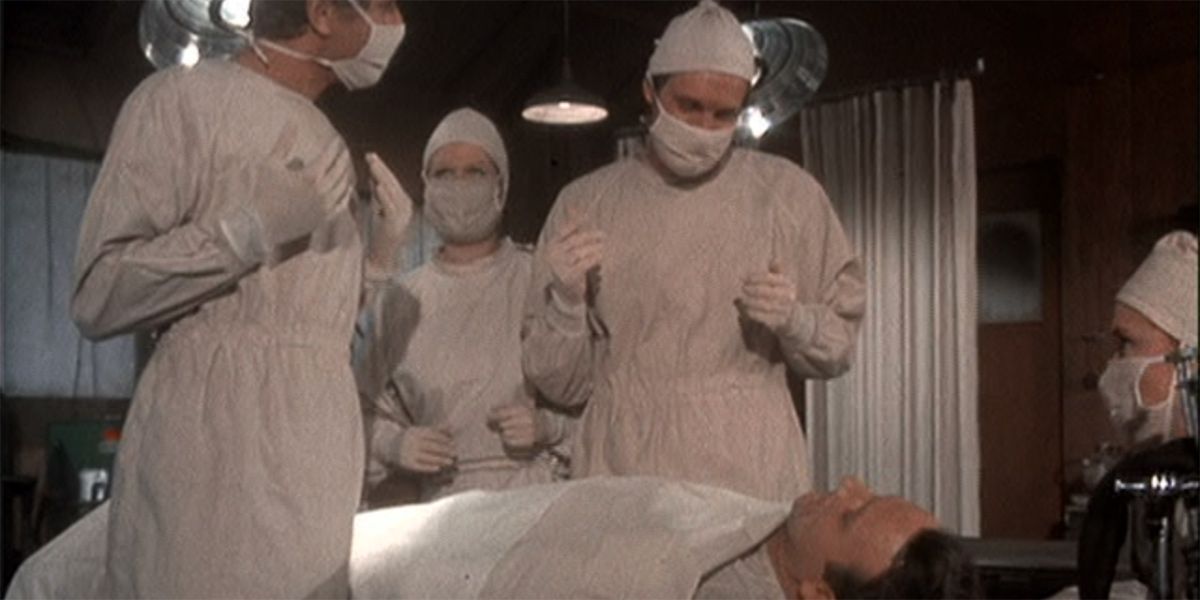
The 11th episode of M*A*S*H's eighth season plays out in real-time, even accounting for commercial breaks. A wounded soldier is brought to the hospital and diagnosed with a lacerated aorta. Hawkeye presses the aorta against the soldier's spinal column to stop the bleeding, but he can only do this for 20 minutes or risk paralyzing the soldier.
A clock appears at the bottom right corner of the screen and begins to count down. Hawkeye must decide whether or not to sacrifice one dying soldier for another and transplant the aorta of another triage patient into the soldier's heart.
9 Dear Sigmund - 8.7
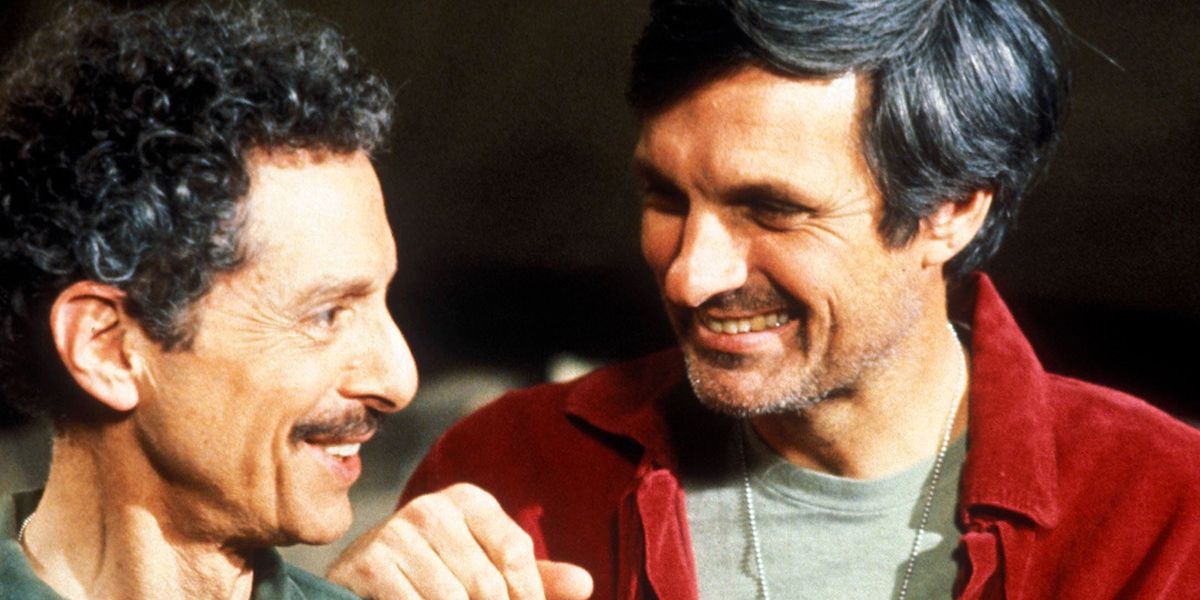
Maj. Sidney Freedman was a psychiatrist and recurring character on the show. In "Dear Sigmund," he uses a letter to Sigmund Freud to recount various tales of the 4077th and describes each character with a vignette. His letter dovetails with the episode's B-plot in which a prankster besets the 4077th.
Freedman can't make out who new arrival Cap. B.J. Honeycutt is, suspecting something under Honeycutt's calm demeanor. It turns out B.J. is the prankster and Freedman offers to help him prank Maj. Burns.
8 Deal Me Out - 8.7
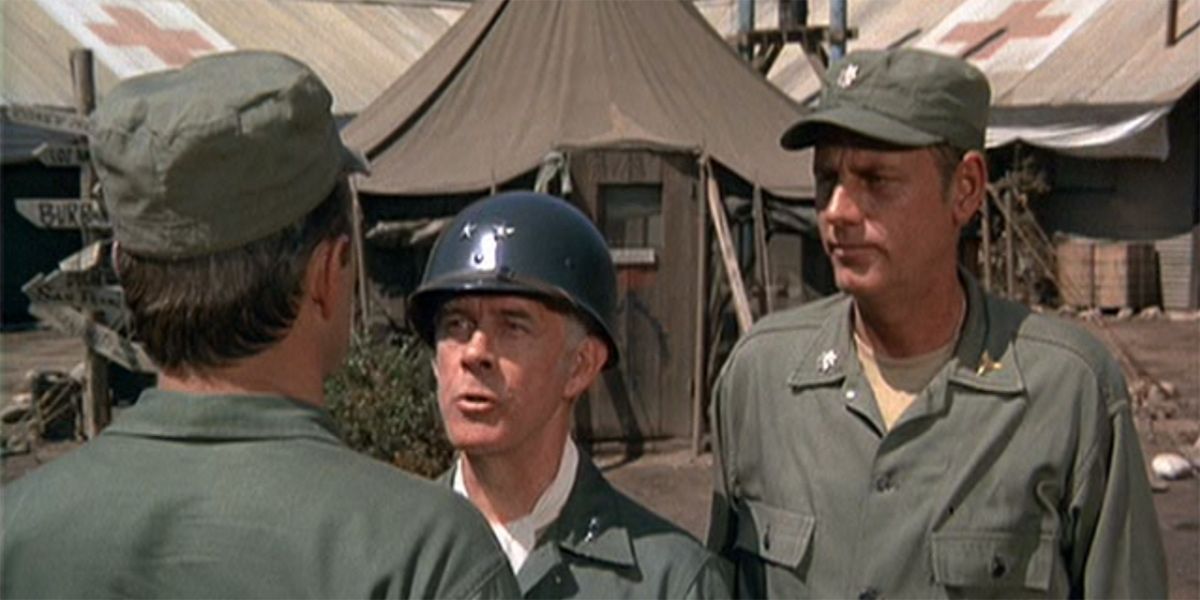
The framing device of "Deal Me Out" is a marathon poker game beset by interruptions. First, a wounded intelligence officer is brought into the camp, but he can't be anesthetized without another officer present.
Hawkeye and Trapper break protocol once it becomes obvious the man's injuries are serious. Another intelligence officer joins the poker game after he arrives to retrieve his fellow officer. A private played by John Ritter later takes Frank hostage with a gun after suffering a post-operation mental breakdown.
7 Good-Bye Radar: Part 2 - 8.8
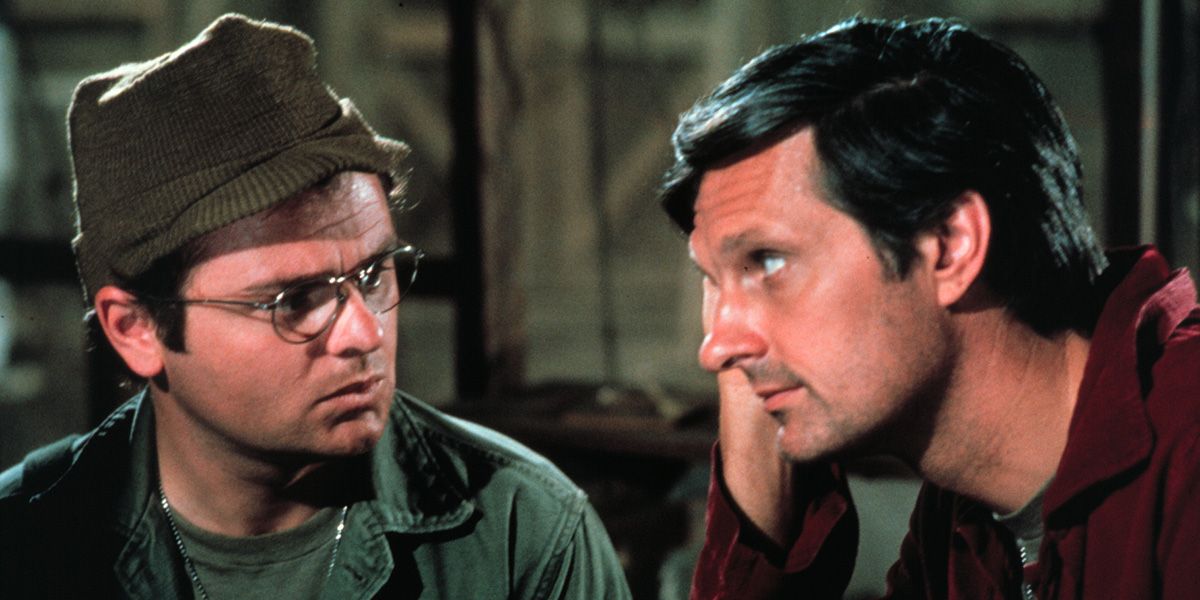
The second part of this two-part episode sees Klinger finally come into his own as the clerk. This convinces Radar to leave the 4077th despite their hardships. Klinger negotiates to swap a case of Scotch for a generator, but another major gets to supply and demands the generator.
The major states his unit had to steal generator from a MASH, which Klinger infers to be the 4077th. He poses as the major's driver as secures the generator, comforting Radar and allowing him to leave. B.J. gives Radar a package to give to B.J.'s wife and child in San Francisco, while Radar leaves his teddy bear on Hawkeye's cot.
6 Welcome to Korea - 8.8
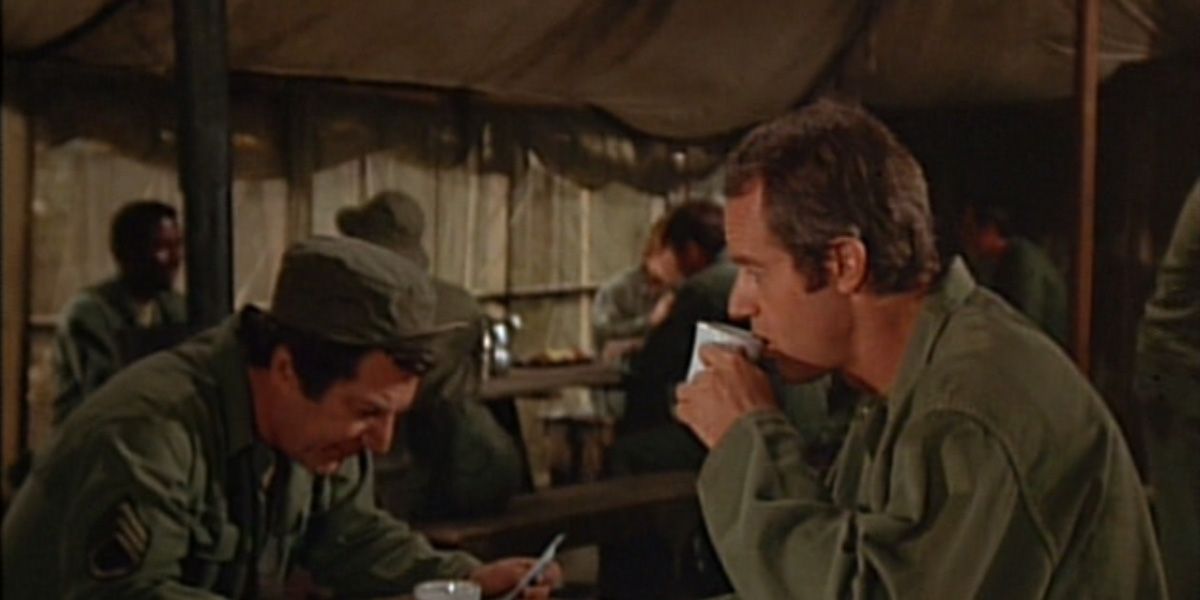
"Welcome to Korea" is the two-part season four premiere of M*A*S*H. It deals directly with Lt. Col. Henry Blake's death in the season 3 finale and the departure of Trapper John McIntyre. Trapper John leaves without telling Hawkeye goodbye and Hawkeye chases after him in a bid for closure. Meanwhile, Majs. Frank Burns and Margaret Houlihan are excited for McIntyre's replacement to arrive because they can mold him how they please.
IMDb considers "Korea" one episode because both parts aired back-to-back, while "Good-Bye Radar" aired on two separate weeks.
5 Adam's Ribs - 8.8
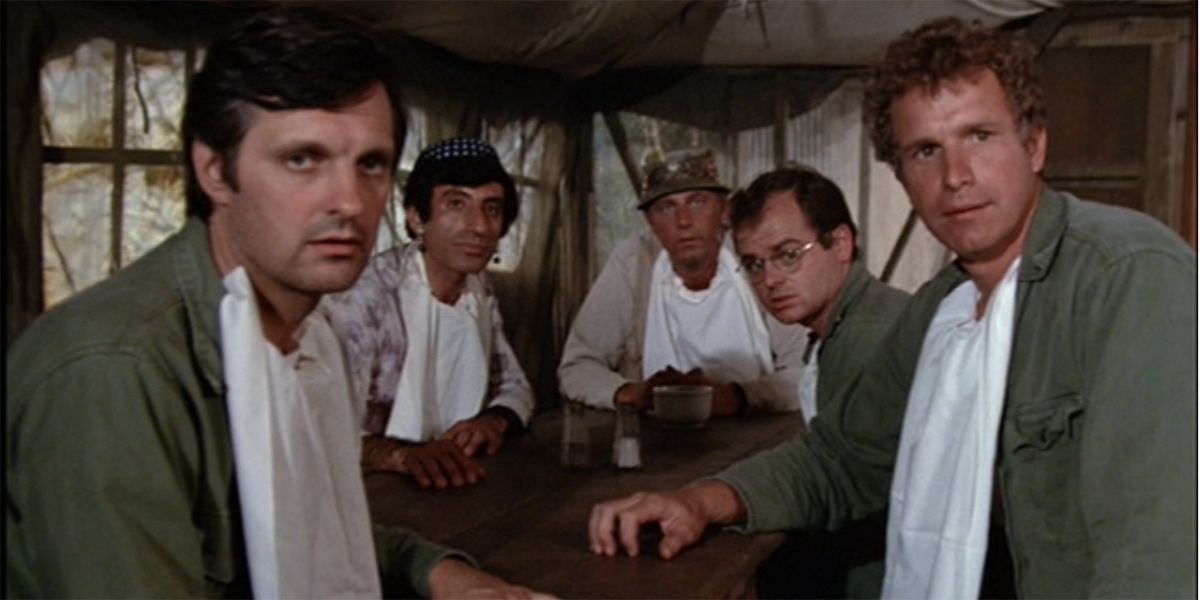
After being served liver and fish for lunch for 11 straight days, Hawkeye hatches a plan to procure ribs from a restaurant in Chicago. Blake gives him the number to the station and Hawkeye poses as a Chicago Tribune reporter to determine the restaurant was Adam's Ribs.
Hawkeye orders 40 pounds of ribs and a gallon of sauce but forgets the coleslaw to the astonishment of the supply depot. Wounded arrive at the 4077th just as sit down, forcing Hawkeye to wait to another day.
4 Sometimes You Hear The Bullet - 8.8
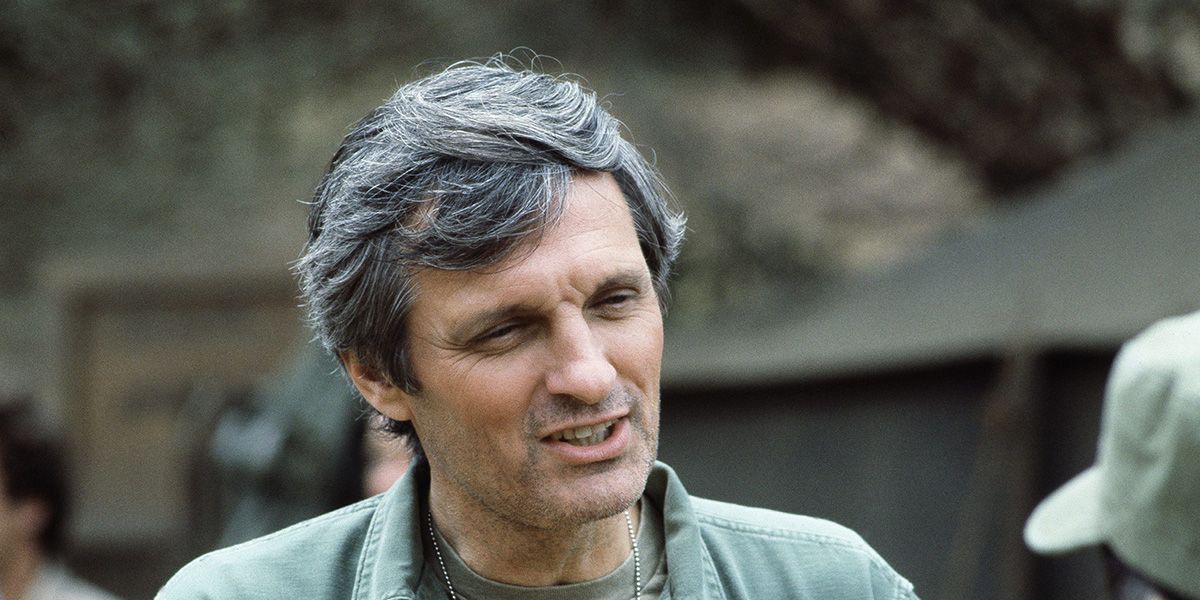
"Sometimes You Hear the Bullet" is arguably the first episode in the series to be a "classic" M*A*S*H episode, mixing comedy and drama to great effect. The episode focuses on Hawkeye operating on two soldiers. One is an old friend of Hawkeye's who is writing a book about how death can be random in war and the other is a 15-year-old private who lied about his age to fight to get his ex-girlfriend back.
After Hawkeye is unable to save his friend, he turns the private over to the authorities. The private remarks that he will hate Hawkeye for as long as he lives. Hawkeye responds that he hopes it is a long and healthy hate.
3 Goodbye, Farewell, and Amen - 8.8
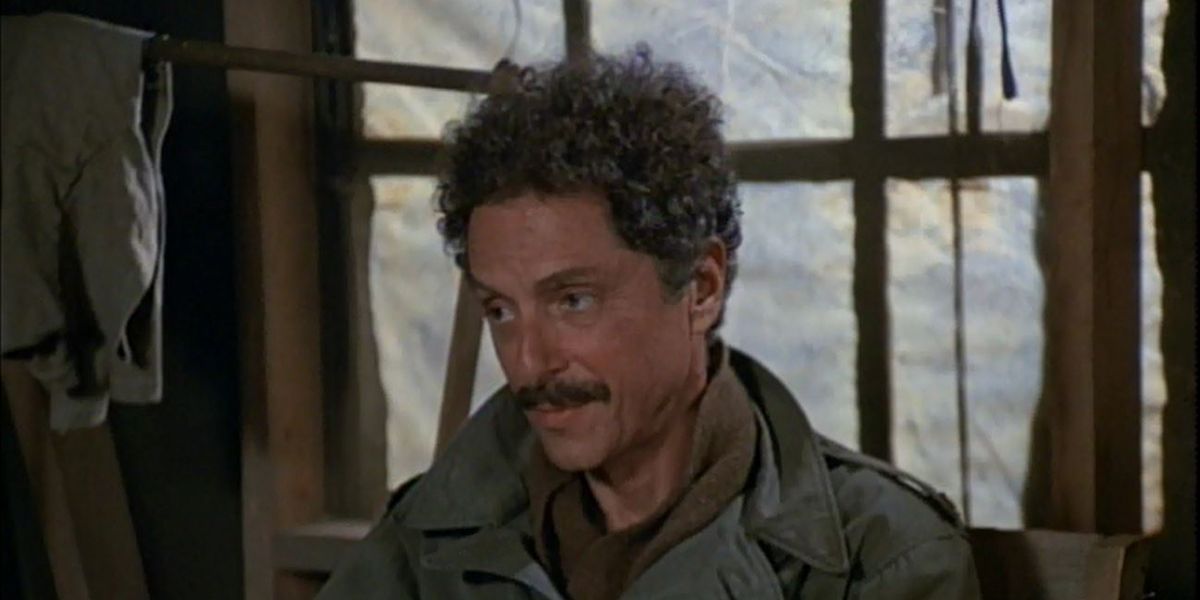
"Goodbye, Farewell, and Amen" was the most-watched television broadcast in American history for 37 years. It's still the most-watched television episode in American history and it's the only broadcast in the top 20 that isn't a Super Bowl. That those records still stand or stood for so long speaks to the impact of the show.
The episode is also two hours long, four times longer than any other episode of the show. The episode doesn't waste a second wrapping up 11 seasons worth of storylines.
2 Tuttle - 9.0

Tuttle is famous because of its weird but heartfelt storyline. Hawkeye and Trapper divert supplies to an orphanage and create the fictional Captain Tuttle as a cover. The pair eventually convince nearly the entire 4077th that Tuttle is a real person with Radar's assistance.
Things progress to the point where Hawkeye and Trapper obtain 14 months of back pay and fake Tuttle death's so that the orphanage can be the sole beneficiary of Tuttle's GI insurance.
1 Abyssinia, Henry - 9.5
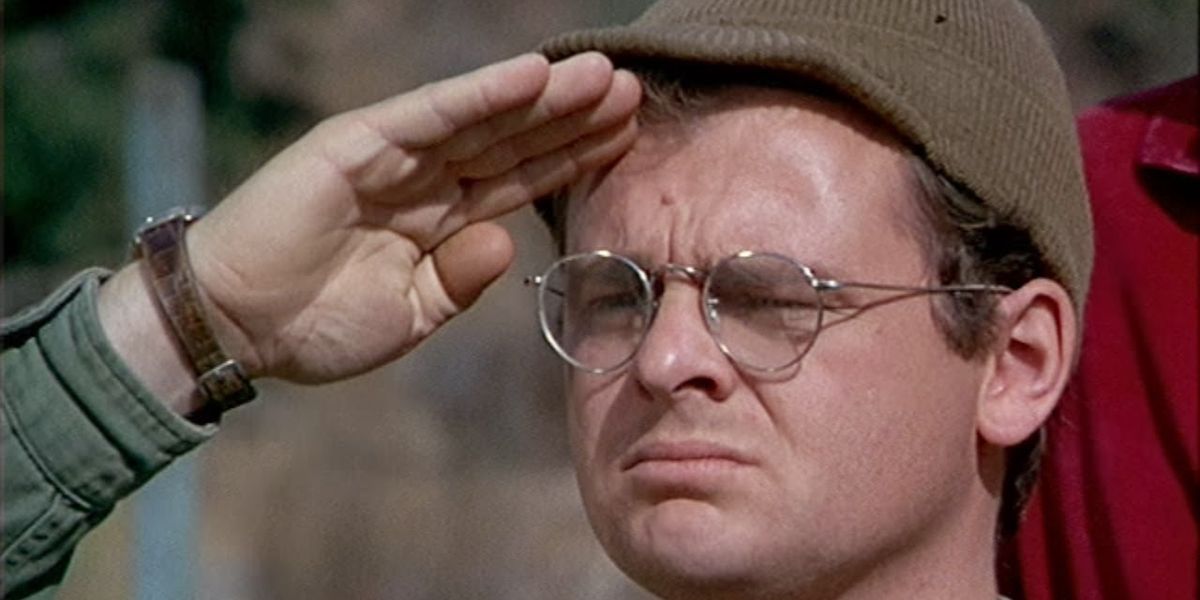
"I have a message. Lieutenant Colonel... Henry Blake's plane... was shot down... over the Sea of Japan. It spun in... There were no survivors."
The controversial Season 3 finale takes the top spot. Lt. Col. Henry Blake is discharged from the Army and makes preparations to go home to Bloomington, Illinois, but dies on the way. It's one of the first episodes of the show to focus on the personal cost of war and marked a sea change in the show's style. Producer Gene Reynolds would later say "we didn't want Henry Blake going back to Bloomington...because a lot of guys didn't get back to Bloomington."
from ScreenRant - Feed https://ift.tt/32liGjn

0 Comments